
ongoing
Peer Power:Support for Educators in Preventing Bullying in Inclusive Classrooms

principal investigator / project leader
Ph.D. / Associate Professor
psychologist, researches roots and manifestations of bullying and peer group dynamics. Implements anti-bullying programs in schools.
Full bio project value: PLN 291,771
funding source: State Fund for Rehabilitation of the Disabled (PFRON)
discipline: psychology
location: cross-university project
duration: 2025 2026
The goal of the project, led by Professor Małgorzata Wójcik, is to provide research-based foundation for the development of practical toolkits that will help homeroom teachers of inclusive classrooms in their day-to-day work, in primary schools in Poland. The tools will also help to create a safe and supportive class environment, conducive to the integration of all students. Furthermore, they will enable faster and more effective responses to any threats of peer bullying and better prevention of possible incidents.
The project fulfils three Sustainable Development Goals (SDGs), including: SDG 3 — Good Health and Well-being, SDG 4 — Quality Education, and SDG 10 — Reduced Inequalities.
Project funding: grant provided by the State Fund for Rehabilitation of the Disabled (PFRON), project no. BEA/000078/BF/D, “Social and Technological Innovations in Activation of Persons with Disabilities” program.
Project objectives
The goal of the project is to conduct participatory research among students, inclusive classroom form teachers, pedagogues who work in schools that have inclusive branches, and students with disabilities. Our research will provide scientific data not only for a report, but also for a “custom-made” toolkit addressed to inclusive classroom form teachers.
The toolkit will include:
- Form teacher’s handbook with teaching plans, addressed to form teachers working in secondary schools, such as trade, preparatory, and technical schools. The teaching plans will guide form teachers in managing the group dynamics leading to the formation of supporting peer group that is inclusive for all. Exercises will enable students to independently develop behavioral norms appropriate for inclusive classrooms, help to understand the situation and behavior of other students in the classroom, provide space for getting to know each other, and establishing action plans for difficult situations — for example how to notify the form teacher of a difficult situation in a safe manner.
- 45-minute webinar providing short, practical instructions for using the handbook, including the objectives and goals of the package, and a guide to conducting home room classes and their goals. The webinar will make the implementation of the process much easier for form teachers — just a short webinar and a review of the toolkit, instead of multi-hour training sessions.
- Guide to the dynamics of peer groups that function in inclusive schools, describing the dynamics of teenage groups faced with additional factors, such as student disability, presence of support teachers, and other matters, which we will obtain during the study.
The toolkit will be implemented and made available in 20 schools with inclusive classrooms.
The “Peer Power Project” undertakes a very significant yet under-researched problem of bullying, i.e., peer violence, experienced by students with special education needs, in inclusive classrooms. We realize that relational forms of bullying — such as exclusion, omission or ignoring — are difficult to detect but, at the same time, they are particularly acute and constitute a serious threat to students’ wellbeing.
Our ambition is not only to diagnose the phenomenon, but most of all, to develop practical tools that will help form teachers working in inclusive classrooms. Through a participatory research approach — acknowledging the voices of students and teachers — we want to capture the complexity of school daily environment.
I believe that resulting solutions will help form teachers in creating classes where all students, regardless of their needs, will feel a part of the community. A positive climate in the classroom translates into wellbeing of the whole group, not just those who need special help.

Wójcik, Małgorzata
Principal Investigator
Specialization
psychologist
First and last name
Małgorzata Wójcik
Academic degree or title
Ph.D. / Associate Professor
Email
This email address is being protected from spambots. You need JavaScript enabled to view it.
Position
profesor uczelni
Role in the Faculty
{"funkcja-na-wydziale0":{"Funkcja":"","\u0141\u0105cznik":"","Nazwa w mianowniku":"Faculty of Psychology in Katowice"}}
Role in the Department
{"funkcja-w-katedrze0":{"Funkcja":"","\u0141\u0105cznik":"","Nazwa w mianowniku":"Department of General, Social and Organizational Psychology"}}
Role in the Research Center
{"funkcja-w-centrum0":{"Funkcja":"Head","\u0141\u0105cznik":"of the","Nazwa w mianowniku":"Bullying Research Center"},"funkcja-w-centrum1":{"Funkcja":"","\u0141\u0105cznik":"","Nazwa w mianowniku":"Youth Research Center"}}
Role in the Institute
{"funkcja-w-instytucie0":{"Funkcja":"","\u0141\u0105cznik":"","Nazwa w mianowniku":"Institute of Psychology"}}
Ph.D. / Associate Professor Małgorzata Wójcikpsychologist, researches roots and manifestations of bullying and peer group dynamics. Implements anti-bullying programs in schools.
Methodology
The modified ecological model (Thornberg, 2015; Horton, 2016), coupled with the socio-ecological theory of development (Bronfenbrenner, 2005), and symbolic interactionism (Blumer, 1969; Charon, 2007) provide a broad theoretical background for the planned research. This approach makes it possible to study the phenomenon of bullying based on the assumption that students and teachers, functioning within a negotiated and established order of power, hierarchy, relationships, and patterns of behavior — as active social agents — create and develop their own contexts and cultures.
In our approach, active participation of research subjects in the research process is crucial. Therefore, we will use the qualitative research methodology. Applying participatory methods, such as joint development of research tools and discussion of research results with the members of the researched community are especially important. Such approach allows researchers to listen to the voices of students, educators and pedagogues, and to capture their unique experience and perspective. This may provide valuable information concerning factors that influence functioning of students with disabilities in the school environment.
Qualitative data will be collected through semi-structured individual in-depth interviews (IDI) with five groups of respondents, such as:
- students with disabilities who are part of inclusive classrooms in secondary schools
- their able-bodied peers
- inclusive classrooms form teachers
- school pedagogues who work in schools with inclusive classrooms
- students with disabilities.
The interviews will be conducted in six campuses of SWPS University (in Warsaw, Wrocław, Poznań, Katowice, Sopot, and Kraków) or in places convenient for respondents, including online meetings. With the permission of study participants, the conversations will be recorded, anonymized, and transcribed. Interviews will take 45 to 60 minutes. Prior to the interviews we will discuss goals, provide an overview of the study, explain research ethics, and obtain a written informed consent to participate in the study.
Data analysis:
Three researchers will conduct a multi-phase data analysis, following the guidelines of a reflexive thematic analysis (Braun i Clarke, 2019). The phases include:
- Familiarization with the data
- Coding
- Generating themes
- Reviewing themes
- Defining and naming themes
- Writing the report.
Each data set from the individual respondent groups will be analyzed separately, and then, at the next stage, the data will be integrated according to the developed themes. The thematic map and code trees along with the qualitative content will constitute the study’s results, which will be presented in the report and also used to design a set of tools for inclusive class educators.
Practical application of results
The experience of our research team working in the Bullying Research Center (BRC) indicate that only the participatory way of developing tools for students and teachers brings expected results. Other researchers also stipulate that students’ perspective is a key factor conducive to making positive changes in school environment (Bradbury-Huang, 2010; Kane, Chimwayange, 2014). It is the students who know best what changes are needed in schools and how to support them in reaching their goals. Drawing upon the experience of all beneficiaries and discussing the effects with them at every phase of the tool development process may improve the effectiveness of the planned products. Moreover, as our previous experience indicates (e.g., Educational Intervention “Closer”, INKLA, and RESQL), the implementation of products developed in collaboration with students, teachers and pedagogues is effective.
The planned products (solutions) will be:
- Compatible — the handbook is a tool dedicated for use with groups during homeroom classes. Our webinar will indicate how to apply it, while the guide will provide information about the key mechanisms occurring in peer groups.
- Easy to implement — easy lesson plans that can be implemented during 45-minute lessons. Thanks to student participation, they will include content appropriate for groups, both in terms of content and student development stage.
- Universal — form teachers will be able to use proposed solutions regardless of student body diversification (e.g., type of disability or education needs), because our lesson plans will be based on universal psychological mechanisms and their impact will be aimed at the whole group, not individual students.
Research team

Hełka, Anna
business psychologist, also researches violent behaviors among children and adolescents
Role in the Faculty
{"funkcja-na-wydziale0":{"Funkcja":"Dean's Representative for the Quality of Education","\u0141\u0105cznik":"at the","Nazwa w mianowniku":"Faculty of Psychology in Katowice"}}
Role in the Department
{"funkcja-w-katedrze0":{"Funkcja":"","\u0141\u0105cznik":"","Nazwa w mianowniku":"Department of General, Social and Organizational Psychology"}}
Role in the Institute
{"funkcja-w-instytucie0":{"Funkcja":"","\u0141\u0105cznik":"","Nazwa w mianowniku":"Institute of Psychology"}}
Specialization
business psychologist
First and last name
Anna Hełka
Academic degree or title
Ph.D. / Assistant Professor
Email
This email address is being protected from spambots. You need JavaScript enabled to view it.
Role in the Research Center
{"funkcja-w-centrum0":{"Funkcja":"","\u0141\u0105cznik":"","Nazwa w mianowniku":"Center for Research in Economic Behavior"}}
Ph.D. / Assistant Professor Anna Hełka

Kaczan, Radosław
specializes in developmental psychology, researches peer violence in schools
Specialization
psychologist
First and last name
Radosław Kaczan
Academic degree or title
Ph.D. / Assistant Professor
Role in the Faculty
{"funkcja-na-wydziale0":{"Funkcja":"","\u0141\u0105cznik":"","Nazwa w mianowniku":"Faculty of Psychology in Warsaw"}}
Role in the Department
{"funkcja-w-katedrze0":{"Funkcja":"","\u0141\u0105cznik":"","Nazwa w mianowniku":"Department of Cognitive Psychology, Development and Education"}}
Email
This email address is being protected from spambots. You need JavaScript enabled to view it.
Role in the Research Center
{"funkcja-w-centrum0":{"Funkcja":"","\u0141\u0105cznik":"","Nazwa w mianowniku":"Bullying Research Center"}}
Institute
Bullying Research Center (BRC)
Ph.D. / Assistant Professor Radosław Kaczan
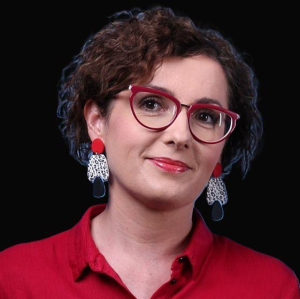
Malinowska, Karolina
psychologist, researchers peer violence in schools and wellbeing of students with special needs
Specialization
psychologist, researcher, psycho-social skill trainer
First and last name
Karolina Malinowska
Academic degree or title
M.A.
M.A. Karolina Malinowska

Rycielski, Piotr
psychologist, researches cognitive development of children and adolescents and dynamics of small groups
First and last name
Piotr Rycielski
Specialization
psychologist
Academic degree or title
Ph.D. / Assistant Professor
Email
This email address is being protected from spambots. You need JavaScript enabled to view it.
Role in the Faculty
{"funkcja-na-wydziale0":{"Funkcja":"","\u0141\u0105cznik":"","Nazwa w mianowniku":"Faculty of Design in Warsaw"}}
Role in the Department
{"funkcja-w-katedrze0":{"Funkcja":"","\u0141\u0105cznik":"","Nazwa w mianowniku":"Department of New Technologies in Social Applications"}}
Role in the Research Center
{"funkcja-w-centrum0":{"Funkcja":"","\u0141\u0105cznik":"","Nazwa w mianowniku":"Bullying Research Center"}}
Institute
Bullying Research Center (BRC)
Ph.D. / Assistant Professor Piotr Rycielski
Collaborators
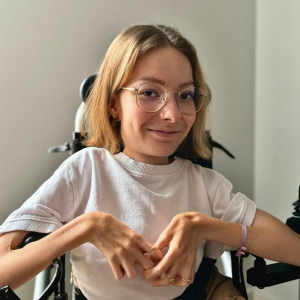
Białczak, Weronika
psychologist pursuing a CBT qualification at SWPS University's CBT School
Specialization
psychologist
First and last name
Weronika Białczak
Academic degree or title
M.A.
M.A. Weronika Białczak
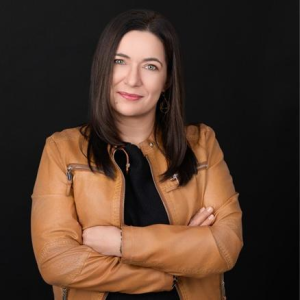
Kosowska, Magdalena
psychologist, RESQL expert specializing in the prevention of bullying
Specialization
psychologist
First and last name
Magdalena Kosowska
M.A. Magdalena Kosowska

Miążek, Szymon
psychologist, specializing in occupational therapy for people with disabilities
Specialization
psychologist
First and last name
Szymon Miążek
M.A. Szymon Miążek
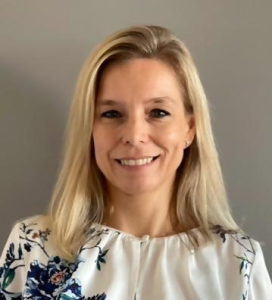
Nyikó, Ewa
psychologist, trainer, specializing in working with children and adolescents
Specialization
psychologist
First and last name
Ewa Nyikó
M.A. Ewa Nyikó

Pasiak, Katarzyna
innovation broker
First and last name
Katarzyna Pasiak
Academic degree or title
M.A.
Specialization
innovation broker
Role in the university
Center for Knowledge Transfer
M.A. Katarzyna Pasiak
Students
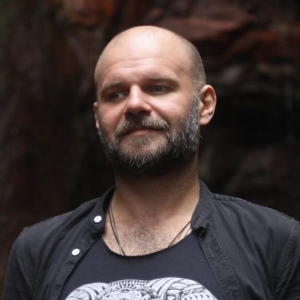
Augustyniak-Laube, Wojciech
psychology student, chair of Student Research Club "Young Space", RESQL trainer
First and last name
Wojciech Augustyniak-Laube
Academic degree or title
M.A.
M.A. Wojciech Augustyniak-Laube
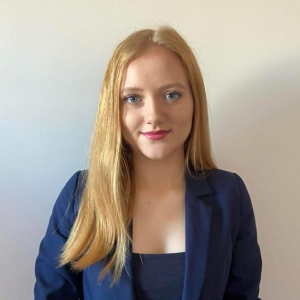
Białońska, Alicja
psychology student, disability caregiver, interested the prevention of bullying
Specialization
psychology student at SWPS University
First and last name
Alicja Białońska
M.A. Alicja Białońskapsychology student

Bochenek, Adrianna
psychology student interested in neurodiversity, minorities, and health psychology
First and last name
Adrianna Bochenek
Specialization
psychology student at SWPS University
M.A. Adrianna Bochenek

Chochołowicz, Jakub
psychology student interested in the psychology of addiction and working with youth
Specialization
psychology student at SWPS University
First and last name
Jakub Chochołowicz
M.A. Jakub Chochołowicz

Okruta, Agnieszka
psychology student, pursuing trainer certification at TROP Group
First and last name
Agnieszka Okruta
Specialization
psychology student at SWPS University
M.A. Agnieszka Okruta

Sierotnik, Magdalena Anna
psychology student, volunteers at "Wyspa" Society for the Protection and Dignity of Children in Chorzów
First and last name
Magdalena Anna Sierotnik
Specialization
psychology student at SWPS University
M.A. Magdalena Anna Sierotnik
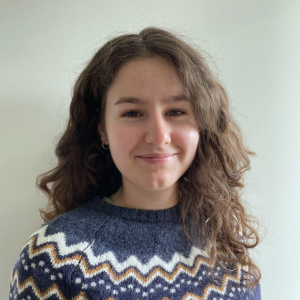
Statine, Diane
psychology student
Specialization
psychology student at SWPS University
First and last name
Diane Statine
M.A. Diane Statine
Bibliography
- Blumer, H. (1969). Symbolic interactionism: Perspective and method. Berkeley, CA: University of California Press.
- Bradbury-Huang, H. (2010). What is good action research? Why the resurgent interest? Action Research, 8 (1), s. 93–109. doi.org/10.1177/1476750310362435.
- Braun, V., & Clarke, V. (2019). Reflecting on reflexive thematic analysis. Qualitative research in sport, exercise and health, 11(4), 589-597.
- Bronfenbrenner, U. (red.) (2005). Making human beings human: Bioecological perspectives on human development. Sage Publications
- Charon, J.M. (2007). Symbolic interactionism: An introduction, an interpretation, an integration. New Jersey: Pearson, Prentice Hall.
- Horton, P. (2016). Unpacking the bullying doll: Reflections from a fieldwork at the social-ecological square. Confero: Essays on Education, Philosophy and Politics, 4 (1), s. 71–95. doi.org/10.3384/confero.2001-4562.170009.
- Kane, R.G., Chimwayange, C. (2014). Teacher action research and student voice: Making sense of learning in secondary school. Action Research, 12 (1), s. 52–77. doi.org/10.1177/1476750313515282.
- Thornberg, R. (2015). The social dynamics of school bullying: The necessary dialogue between the blind men around the elephant and the possible meeting point at the social-ecological square. Confero: Essays on Education, Philosophy and Politics, 3 (2), s. 161–203. doi.org/10.3384/confero.2001-4562.1506245.